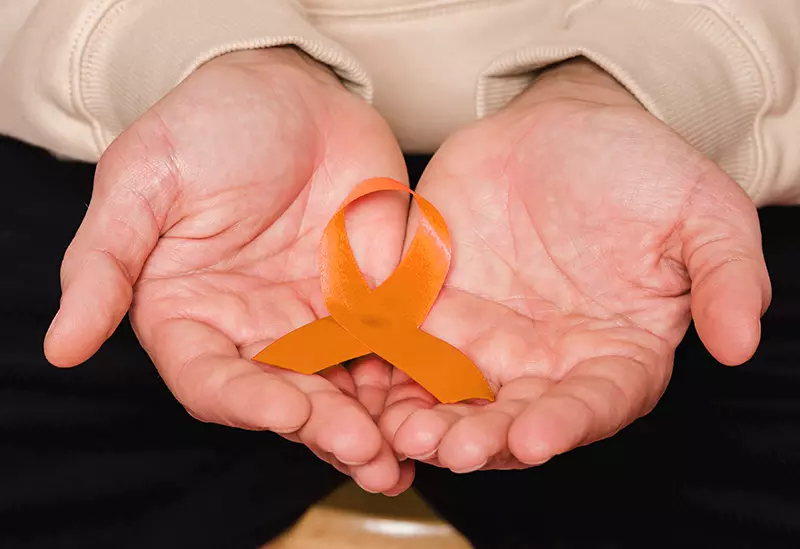This month provides people with Multiple Sclerosis (MS), as well as their loved ones and friends, the opportunity to create awareness and inform the public about the disease by exchanging information, sympathy, and support. Throughout March, several advocacy agencies, societies, and organizations will host a series of events on MS. Learn more about MS and how to get involved in MS Awareness Month.
What is Multiple Sclerosis (MS)?
MS is a chronic neurological disease that affects the central nervous system (CNS), which consists of the brain and spinal cord. In MS, the body's immune system attacks the myelin sheath that covers and protects nerve fibers in the CNS, causing inflammation and damage to the myelin and the nerve fibers. Experts consider MS an autoimmune disease, however, no specific antigens have been identified in MS.
What causes multiple sclerosis?
Some of the many possible causes of MS include:
- other autoimmune disorders
- infectious agents, such as viruses
- environmental factors such as low vitamin D and cigarette smoking
- genetic factors (there is no evidence that MS is directly inherited)
Who is at risk of MS?
Anyone can develop MS, but some populations are at higher risk. For instance, women are three times more likely than men of developing MS.
How many people suffer from multiple sclerosis in the United States?
A 2019 survey showed that about 1 million people live with MS in the United States.
What are the types of multiple sclerosis?
There are four types of multiple sclerosis:
- Relapsing-Remitting MS (RRMS): RRMS comes with neurologic symptoms, either new or worsening during a clearly defined attack. The attack is followed by partial or complete recovery.
- Clinically Isolated Syndrome (CIS): CIS refers to the first occurrence of the neurologic syndrome because of the destruction of the protective layer (myelin) of a nerve in the central nervous system.
- Secondary Progressive MS (SPMS): It is characterized by more progressive symptoms with or without relapse or new lesions on MRI.
- Primary Progressive MS (PPMS): Has a gradual but steady progression of disability from the onset of symptoms, with few or no relapses or remissions.
What are the signs of MS?
Some of the early signs of MS are:
- fatigue
- numbness in the face, arms, legs, and fingers
- vision problems
- chronic pain and itching
- muscle weakness and involuntary muscle spasms
- dizziness
- bladder and bowel dysfunction
- cognitive impairment
- depression
- difficulty with coordination and balance
How is MS diagnosed?
Diagnosis of MS is often challenging, particularly in the early stages, because the symptoms are specific and suggestive of other nervous system disorders. There is no single laboratory test to diagnose MS, but magnetic resonance imaging (MRI) and spinal fluid analysis help diagnose it.
What are the treatment options for MS?
MS is a chronic and often progressive disease, which means that symptoms may worsen over time, and there is currently no cure. However, there are a number of treatments available that can help to manage symptoms and slow the progression of the disease. These include medications, physical therapy, occupational therapy, and other supportive therapies.
There is a list of FDA-approved medications that modify the course of MS by limiting the areas of damage, delaying the progression of disability, and reducing the number of relapses. Examples of such medications are interferon beta-1a (Avonex), interferon beta-1b (Betaseron), ofatumumab (Kesimpta), teriflunomide (Aubagio), ozanimod (Zeposia), and alemtuzumab (Lemtrada). Also, your doctor may prescribe medications to manage the respective symptoms of MS.
How to get involved during MS Awareness Month?
You can participate in MS Awareness Month in the following ways:
Join Walk MS to show support for those suffering with MS.
Show support by educating yourself more about MS. You can be part of a live MS webinar to learn more about the condition from an expert. You can also read a book, blog post, or article on MS.
Share your story if you have MS. Your voice can motivate others with MS to stay positive.
Give a monetary donation to organizations that fund MS research.
Show friends and family how to keep medication cost from being a barrier to treatment with an RxLess prescription savings card.
















